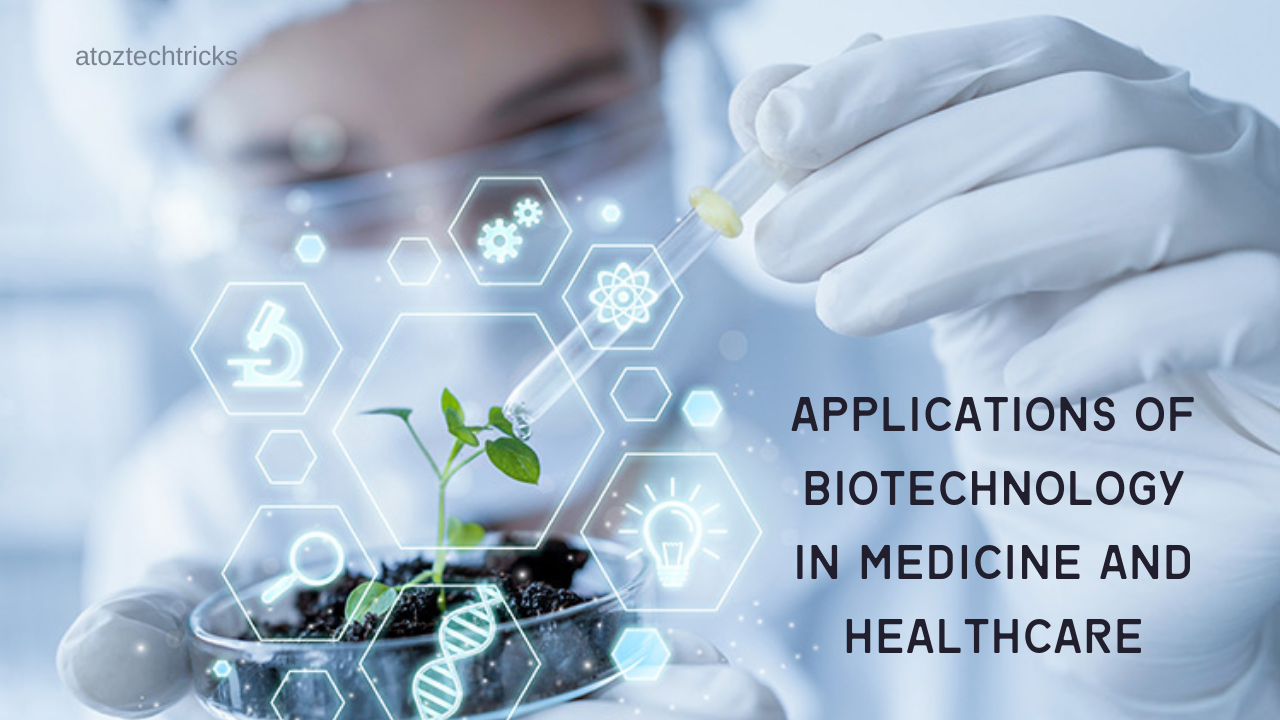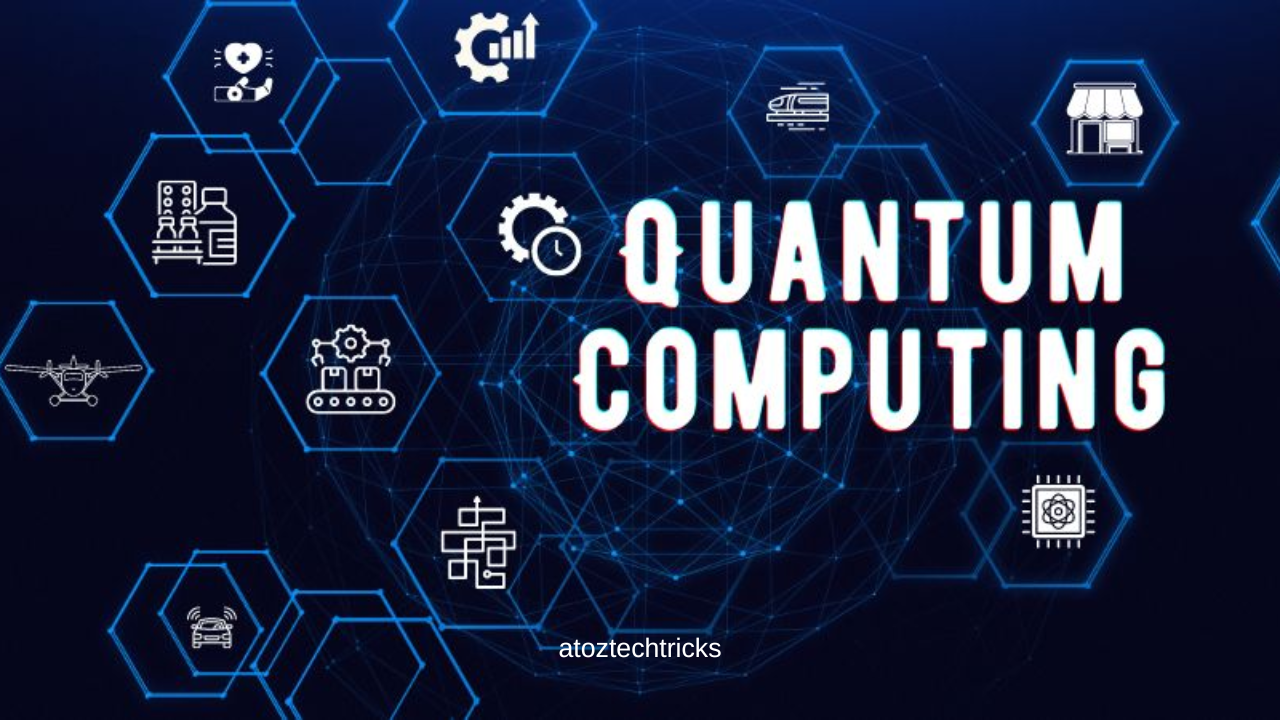Applications of Biotechnology in Medicine and Healthcare
Biotechnology has revolutionized the field of medicine and healthcare, providing innovative solutions to some of the most challenging health problems. From personalized medicine to gene therapy, biotechnology has opened new frontiers that were once considered the realm of science fiction. This article delves into the various applications of biotechnology in medicine and healthcare, exploring how these advancements are transforming the way we diagnose, treat, and prevent diseases.
1. Introduction to Biotechnology in Medicine
Biotechnology involves the use of living organisms or their systems to develop products that improve human health. In medicine, biotechnology plays a crucial role in the development of new drugs, therapies, and diagnostic tools. The integration of biotechnology in healthcare has led to the emergence of personalized medicine, where treatments are tailored to the individual patient based on their genetic makeup.
1.1 The Evolution of Biotechnology
The application of biotechnology in medicine dates back to the development of the first vaccines in the 18th century. However, the field has evolved significantly over the years, with advancements in molecular biology, genetics, and bioinformatics driving discoveries and innovations. The advent of recombinant DNA technology in the 1970s marked a turning point in biotechnology, enabling scientists to manipulate genetic material and create genetically modified organisms (GMOs) that produce therapeutic proteins and other medical products.
1.2 Importance of Biotechnology in Modern Medicine
Biotechnology is crucial in modern medicine as it provides tools for understanding the molecular basis of diseases, developing targeted therapies, and improving diagnostic accuracy. It also plays a significant role in drug discovery, vaccine development, and regenerative medicine. The ability to engineer biological systems has enabled the production of biologics, a class of drugs that includes monoclonal antibodies, gene therapies, and cell-based therapies.

2. Biotechnology in Drug Development
One of the most significant contributions of biotechnology to medicine is in drug development. Traditional drug development often involves a trial-and-error approach, but biotechnology has enabled a more targeted and efficient process.
2.1 Biologics and Monoclonal Antibodies
Biologics are drugs derived from living organisms, and they include a wide range of products such as vaccines, blood components, and gene therapies. Monoclonal antibodies, a type of biologic, have become a critical tool in treating various diseases, including cancer, autoimmune disorders, and infectious diseases. These antibodies are engineered to target specific proteins on the surface of cells, allowing for precise treatment with minimal side effects.
2.2 Gene Therapy
Gene therapy is a groundbreaking application of biotechnology that involves altering the genetic material of a patient’s cells to treat or prevent disease. This can be done by replacing a faulty gene with a healthy copy, inactivating a malfunctioning gene, or introducing a new gene into the body. Gene therapy holds promise for treating a wide range of conditions, from inherited genetic disorders like cystic fibrosis to complex diseases like cancer.
2.3 Personalized Medicine
Personalized medicine is another area where biotechnology has made significant strides. By analyzing a patient’s genetic profile, healthcare providers can tailor treatments to the individual’s unique genetic makeup. This approach not only improves the efficacy of treatments but also reduces the risk of adverse reactions. For example, pharmacogenomics, a field that studies how genes affect a person’s response to drugs, is helping to develop personalized drug regimens that are more effective and have fewer side effects.
3. Biotechnology in Diagnostics
Accurate and early diagnosis is crucial for effective treatment and management of diseases. Biotechnology has revolutionized diagnostics by providing tools that are more sensitive, specific, and rapid than traditional methods.
3.1 Molecular Diagnostics
Molecular diagnostics involves the analysis of DNA, RNA, or proteins to diagnose diseases. Techniques such as polymerase chain reaction (PCR), next-generation sequencing (NGS), and microarrays have become essential in detecting genetic mutations, identifying infectious agents, and monitoring disease progression. These technologies have significantly improved the accuracy and speed of diagnostics, enabling early detection and personalized treatment.
3.2 Point-of-Care Testing
Point-of-care testing (POCT) is another innovation in diagnostics made possible by biotechnology. POCT refers to diagnostic tests that can be performed at or near the patient’s location, providing immediate results. This has been particularly valuable in emergency settings, rural areas, and developing countries where access to laboratory facilities may be limited. POCT has been used for various applications, including blood glucose monitoring, rapid infectious disease testing, and pregnancy testing.
3.3 Companion Diagnostics
Companion diagnostics are tests used to determine whether a patient will benefit from a specific drug or therapy. These tests are often developed in conjunction with targeted therapies and are essential for the success of personalized medicine. For example, in cancer treatment, companion diagnostics can identify patients whose tumours have specific genetic mutations that can be targeted by certain drugs.
4. Biotechnology in Regenerative Medicine
Regenerative medicine is a rapidly growing field that aims to repair, replace, or regenerate damaged tissues and organs. Biotechnology has played a pivotal role in advancing this field through the development of stem cell therapies, tissue engineering, and gene editing.
4.1 Stem Cell Therapy
Stem cells have the unique ability to differentiate into various types of cells, making them a valuable tool for regenerative medicine. Biotechnology has enabled the isolation, culture, and manipulation of stem cells for therapeutic purposes. Stem cell therapy is being explored for a wide range of applications, including the treatment of spinal cord injuries, heart disease, and neurodegenerative disorders.
4.2 Tissue Engineering
Tissue engineering involves creating artificial tissues or organs in the laboratory that can be implanted into patients to replace damaged ones. Biotechnology has been instrumental in developing scaffolds, biocompatible materials, and growth factors that support the growth and differentiation of cells into functional tissues. Tissue engineering holds promise for addressing the shortage of donor organs and improving the outcomes of organ transplants.
4.3 Gene Editing
Gene editing is a powerful tool that allows scientists to modify the DNA of living organisms with precision. The CRISPR-Cas9 system, one of the most widely used gene-editing technologies, has the potential to correct genetic defects, enhance immune responses, and even prevent the transmission of inherited diseases. In regenerative medicine, gene editing is being used to create genetically modified cells that can be used for therapies, such as engineering immune cells to target cancer.

5. Biotechnology in Vaccines and Immunotherapy
Vaccines and immunotherapy are critical tools in the prevention and treatment of infectious diseases and cancer. Biotechnology has revolutionized these fields by enabling the development of new vaccines and immune-based therapies.
5.1 Vaccine Development
Biotechnology has accelerated the development of vaccines by enabling the use of recombinant DNA technology, synthetic biology, and other advanced techniques. For example, the production of the hepatitis B vaccine involves the use of genetically engineered yeast cells to produce the viral protein, which is then used to immunize individuals. More recently, the rapid development of mRNA vaccines for COVID-19 demonstrated the potential of biotechnology to respond quickly to emerging infectious diseases.
5.2 Cancer Immunotherapy
Cancer immunotherapy involves using the body’s immune system to fight cancer. Biotechnological advancements have led to the development of several types of immunotherapies, including checkpoint inhibitors, CAR-T cell therapy, and cancer vaccines. Checkpoint inhibitors are drugs that block proteins on immune cells that prevent them from attacking cancer cells, while CAR-T cell therapy involves engineering a patient’s T cells to target and kill cancer cells. These therapies have shown remarkable success in treating certain types of cancer, particularly those that were previously considered untreatable.
5.3 Antibody-Based Therapies
Antibody-based therapies are another area where biotechnology has made significant contributions. Monoclonal antibodies can be engineered to target specific antigens on cancer cells, leading to their destruction by the immune system. These therapies have become a cornerstone in the treatment of various cancers, autoimmune diseases, and infectious diseases.
Driving into the Future: How 5G is Revolutionizing Autonomous Vehicles
6. Biotechnology in Genetic Testing and Counseling
Genetic testing and counselling are essential components of personalized medicine, providing individuals with information about their genetic makeup and the risk of developing certain diseases. Biotechnology has enabled the development of advanced genetic tests that can detect mutations associated with various inherited conditions.
6.1 Preimplantation Genetic Diagnosis (PGD)
Preimplantation genetic diagnosis (PGD) is a technique used to screen embryos for genetic defects before they are implanted during in vitro fertilization (IVF). This technology has been invaluable for couples at risk of passing on genetic disorders, allowing them to select healthy embryos for implantation. PGD has also been used to identify embryos with specific genetic traits, such as those that match a sibling in need of a stem cell transplant.
6.2 Prenatal Genetic Testing
Prenatal genetic testing involves screening a fetus for genetic abnormalities during pregnancy. Biotechnology has enabled the development of non-invasive prenatal testing (NIPT), which analyzes cell-free fetal DNA in the mother’s blood to detect conditions such as Down syndrome. NIPT has become a popular option for expectant parents, offering a safer and less invasive alternative to traditional methods like amniocentesis.
6.3 Carrier Screening
Carrier screening is a type of genetic test that determines whether an individual carries a gene for a specific genetic disorder. This information is particularly important for couples planning to have children, as it can help them understand the risk of passing on a genetic condition to their offspring. Biotechnology has made carrier screening more accessible and accurate, allowing for the detection of a wide range of genetic disorders.
7. Ethical Considerations in Biotechnology
While the applications of biotechnology in medicine and healthcare offer immense benefits, they also raise important ethical considerations. The ability to manipulate genetic material, create genetically modified organisms, and engineer new therapies has sparked debates about the implications of these technologies.
7.1 Ethical Issues in Gene Editing
Gene editing, particularly in human embryos, has been a topic of intense ethical debate. The potential to correct genetic defects and prevent inherited diseases is promising, but the possibility of creating “designer babies” with enhanced traits raises concerns about eugenics and social inequality. The long-term effects of gene editing on the human gene pool are also unknown, leading to calls for strict regulation and oversight of this technology.
7.2 Access to Biotechnology-Based Treatments
Access to biotechnology-based treatments, such as gene therapies and biologics, is another ethical issue. These treatments are often expensive and may not be accessible to all patients, particularly those in low- and middle-income countries. Ensuring equitable access to these life-saving therapies is a significant challenge that requires collaboration between governments, healthcare providers, and the biotechnology industry.
7.3 Informed Consent and Genetic Privacy
Informed consent and genetic privacy are critical considerations in the use of biotechnology in healthcare. Patients must be fully informed about the risks and benefits of genetic testing, gene therapy, and other biotechnological interventions. Additionally, the storage and use of genetic information raise concerns about privacy and the potential for discrimination based on genetic data. Safeguarding patients’ rights and privacy is essential as biotechnology continues to advance.
8. The Future of Biotechnology in Medicine
The future of biotechnology in medicine is full of promise, with ongoing research and development paving the way for new therapies, diagnostic tools, and healthcare solutions. Emerging technologies, such as synthetic biology, nanotechnology, and artificial intelligence, are expected to further revolutionize the field.
8.1 Synthetic Biology
Synthetic biology involves designing and constructing new biological parts, devices, and systems that do not exist in nature. This field holds the potential to create new drugs, vaccines, and diagnostic tools that are more effective and affordable. For example, synthetic biology could be used to engineer bacteria that produce therapeutic compounds or to create biosensors that detect diseases at an early stage.
8.2 Nanotechnology in Medicine
Nanotechnology involves manipulating matter at the nanoscale to create materials and devices with unique properties. In medicine, nanotechnology is being explored for applications such as targeted drug delivery, imaging, and tissue engineering. Nanoparticles can be designed to deliver drugs directly to cancer cells, minimizing side effects and improving treatment outcomes. Additionally, nanomaterials are being used to create scaffolds for tissue regeneration and to enhance the sensitivity of diagnostic tests.
8.3 Artificial Intelligence and Biotechnology
Artificial intelligence (AI) is playing an increasingly important role in biotechnology, particularly in drug discovery, diagnostics, and personalized medicine. AI algorithms can analyze vast amounts of biological data to identify new drug targets, predict patient responses to treatments, and develop personalized treatment plans. The integration of AI with biotechnology is expected to accelerate the pace of medical advancements and improve patient outcomes.
Biotechnology has transformed medicine and healthcare, providing innovative solutions to some of the most pressing health challenges. From drug development to diagnostics, and generative medicine to genetic testing, biotechnology has opened new frontiers that were once unimaginable. As the field continues to evolve, the potential for biotechnology to improve human health and well-being is boundless. However, it is essential to address the ethical considerations and challenges associated with these technologies to ensure that the benefits are accessible to all and that the risks are carefully managed. The future of biotechnology in medicine is bright, with the promise of new therapies, diagnostic tools, and healthcare solutions that will continue to revolutionize the way we prevent, diagnose, and treat diseases.




Post Comment